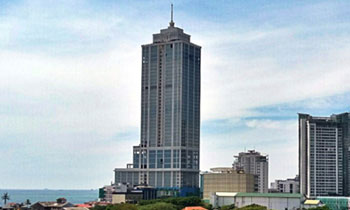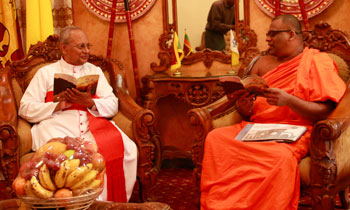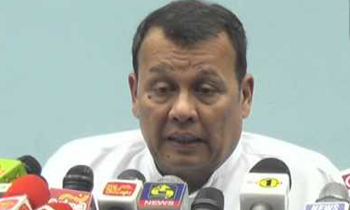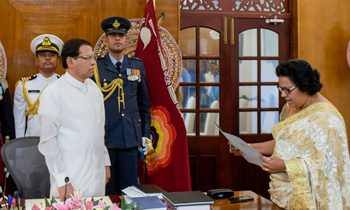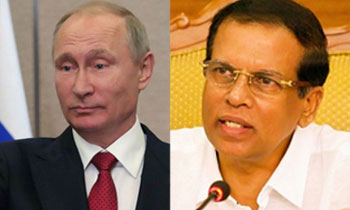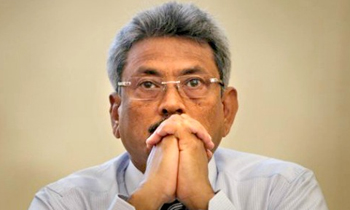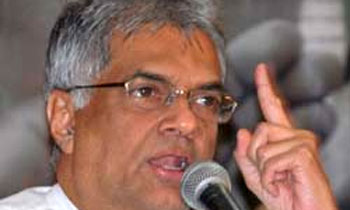
Subscribe
Login
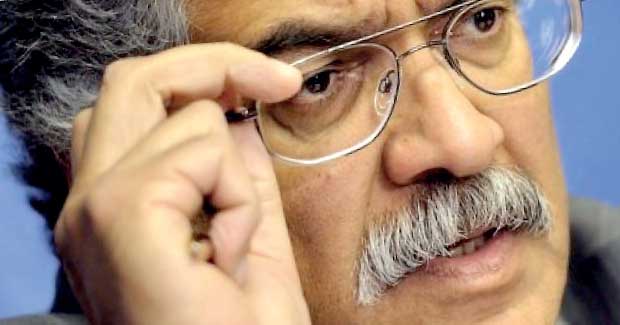

Renowned Pakistani diplomat Zamir Akram, in an email interview with the Daily Mirror spoke about Sri Lanka-Pakistan relations, the UNHRC process and the selective application of the international humanitarian law. Akram was the one time Pakistan Permanent Representative to the United Nations and other International Organizations in Geneva. During his tenure, he campaigned in favour of Sri Lanka against the UNHRC resolutions during the period after the war.
Akram joined the Foreign Service of Pakistan in July 1978 and has held various diplomatic assignments in Pakistan Missions abroad, including in Moscow, Geneva, New Delhi and Washington and served as Pakistan’s Ambassador to Nepal from August 2002 to March 2005. Akram has also served in a variety of positions at the Ministry of Foreign Affairs in Islamabad. He holds a Masters Degree in International Relations from the London School of Economics and Political Science.
Following are excerpts of the interview done with Akram.
Q How do you view Pakistan-Sri Lanka relations in the current context?
Pakistan and Sri Lanka have always maintained very close and friendly relations. We fully support the sovereignty and territorial integrity of Sri Lanka. We welcome the victory that Sri Lanka has achieved against terrorism and wish the Sri Lankan people and Government every success in their efforts to ensure national integrity and progress in the future. In the current challenging times, our two countries must continue to work together to safeguard our national interests and promote mutually beneficial relations in all fields, including economic and trade relations in particular.
Sri Lanka is among the few countries in the world that have successfully defeated terrorism
Q What are the new areas that the two countries should consider for the expansion of relations?
During this present time where there is a need for our countries to address economic difficulties and development. Pakistan and Sri Lanka have a shared interest in cooperating with each other in economic and trade areas. At the same time, we have a shared interest in ensuring our national security for which there remains considerable room for cooperation, both internationally and at the regional levels.
Q At the United Nations Human Rights Council (UNHRC), Pakistan played a role in obtaining the support of like-minded countries against a resolution on Sri Lanka, moved by the United States in pursuant to the end of war. You, as the then Pakistani Permanent Secretary to the UN in Geneva, took the lead regarding this issue. How do you describe your role?
My role as the Permanent Representative of Pakistan was consistent with our traditional and principled policy of supporting Sri Lanka, which we thought was being unfairly targeted. After successfully defeating terrorism, the international community should have come fully to Sri Lanka’s assistance instead of some countries using human rights as a tool to create difficulties for Sri Lanka. Moreover, we felt that these countries were indulging in double-standards since they themselves have been guilty of human rights violations while combating terrorism.
Q How do you view the moving of country-specific resolutions by the UNHRC?
Pakistan has always opposed country-specific UNHRC resolutions as we believe that such resolutions are counter-productive and don’t achieve the desired objectives. Also such an approach is used against selected countries, but not across the board against all those who are guilty of human rights resolutions. As such these double standards and selectivity do not advance the goal of protecting and promoting universal human rights standards.
Q There is criticism that there is selective application of the International Humanitarian Law and the International Human Rights Law by the UNHRC. How fair is this criticism?
This is fair and justified criticism. The countries that pursue this selective and preferential approach at ‘naming and shaming’ some countries while overlooking the human rights violations by themselves or by their friends and allies, are really undermining the very principles of the UN Charter, the Universal Declaration on Human Rights and Humanitarian Law. Clear examples are the way in which these countries have ignored human rights of the Palestinian and Kashmiri people, while targeting other countries only because they aren’t allies. In the final analysis such an approach only serves to undermine international law.
My role as the Permanent Representative of Pakistan was consistent with our traditional and principled policy of supporting Sri Lanka
Q Sri Lanka co-sponsored the UNHRC resolution in 2015 under the new Government, a departure from the practice of the previous rule. What is your opinion on this?
At that time, Pakistan along with certain other friends of Sri Lanka advised against this approach. However, in view of our friendship and unstinted support for Sri Lanka, we went along with this decision. Ultimately, in my view, this didn’t help Sri Lanka.
Q With the change of Government in the United States, do you see any change in the approach of the UNHRC to human rights issues?
The new Trump administration doesn’t seem to place much importance on the UN generally and UNHRC in particular. As per my information it hasn’t even appointed an American PR/Ambassador to the UNHRC as yet. This demonstrates the approach of the new US administration towards the UNHRC. That said, I don’t see any change in the US policy of double-standards on human rights issues.
Both our countries must continue standing together against such terrorism and learn from each other.
Q Pakistan is confronted with the threat of international terrorism. What is the best mechanism to counter it globally in cooperation with other countries?
Pakistan condemns terrorism in all its forms and manifestations, whether it is pursued by States or non-State actors. We also believe that terrorism can’t be ascribed to any religion or ethnic group. Terrorism should also not be equated with the legitimate struggle of peoples for self-determination who are under foreign occupation or alien domination – a right that is recognized by the UN Charter and UN decisions. Just as Sri Lanka, Pakistan is combating terrorism sponsored by our neighbour. But we have achieved major successes against such State sponsored terrorists with a 70 percent reduction in their terrorist activities. Both our countries must continue standing together against such terrorism and learn from each other. The eventual successes against terrorism will emerge from resolving the root causes of terrorism.
Double standards and selectivity do not advance the goal of protecting and promoting universal human rights standards.
Q How can Sri Lanka contribute to fighting global terrorism with its success story of ending a 30-year-old war against the LTTE?
Sri Lanka is among the few countries in the world that have successfully defeated terrorism. This was due to determined political and security efforts. Some of the major powers have been fighting a ‘war on terror’ for decades without any real successes because they have only relied on the use of force. They also need to find political solutions to the root causes of terrorism. Sri Lanka can play a positive role by sharing its experience in dealing with this scourge. The world has much to learn from Sri Lanka.
Q SAARC appears to be the least integrated regional group. How do you view the challenges it faces in the journey of realizing its goals?
The continuing problem for SAARC is that its largest member is not willing to accommodate its smaller partners. This isn’t a recipe for regional integration and cooperation. SAARC will only succeed if all its member States are willing to respect each other’s national interests and seek to pursue a common goal on an equitable basis.
BuffaloaCitizen Thursday, 21 December 2017 09:46
You are interviewing a country that is a failure in Politics, International relationships, accusing everybody around Pakistan that they are sponsoring terrorism whereas the existence of Pakistan itself is due to sponsoring of terrorism, totally corrupt government that is full controlled not by the Pakistani citizens but by the army, a country whose existence depends on enemity towards India and selling this product day in and day out for its existence. If a Sri Lankan is given a chance to migrate either to Pakistan or the West, which will he choose? Therefore this Kelum Bandara don't waste your time funneling the opinions of a Bankrupt nation that obviously will support another going bankrupt nation such as Sri Lanka.
Reply : 0 1


Renowned Pakistani diplomat Zamir Akram, in an email interview with the Daily Mirror spoke about Sri Lanka-Pakistan relations, the UNHRC process and the selective application of the international humanitarian law. Akram was the one time Pakistan Permanent Representative to the United Nations and other International Organizations in Geneva. During his tenure, he campaigned in favour of Sri Lanka against the UNHRC resolutions during the period after the war.
Akram joined the Foreign Service of Pakistan in July 1978 and has held various diplomatic assignments in Pakistan Missions abroad, including in Moscow, Geneva, New Delhi and Washington and served as Pakistan’s Ambassador to Nepal from August 2002 to March 2005. Akram has also served in a variety of positions at the Ministry of Foreign Affairs in Islamabad. He holds a Masters Degree in International Relations from the London School of Economics and Political Science.
Following are excerpts of the interview done with Akram.
Q How do you view Pakistan-Sri Lanka relations in the current context?
Pakistan and Sri Lanka have always maintained very close and friendly relations. We fully support the sovereignty and territorial integrity of Sri Lanka. We welcome the victory that Sri Lanka has achieved against terrorism and wish the Sri Lankan people and Government every success in their efforts to ensure national integrity and progress in the future. In the current challenging times, our two countries must continue to work together to safeguard our national interests and promote mutually beneficial relations in all fields, including economic and trade relations in particular.
Sri Lanka is among the few countries in the world that have successfully defeated terrorism
Q What are the new areas that the two countries should consider for the expansion of relations?
During this present time where there is a need for our countries to address economic difficulties and development. Pakistan and Sri Lanka have a shared interest in cooperating with each other in economic and trade areas. At the same time, we have a shared interest in ensuring our national security for which there remains considerable room for cooperation, both internationally and at the regional levels.
Q At the United Nations Human Rights Council (UNHRC), Pakistan played a role in obtaining the support of like-minded countries against a resolution on Sri Lanka, moved by the United States in pursuant to the end of war. You, as the then Pakistani Permanent Secretary to the UN in Geneva, took the lead regarding this issue. How do you describe your role?
My role as the Permanent Representative of Pakistan was consistent with our traditional and principled policy of supporting Sri Lanka, which we thought was being unfairly targeted. After successfully defeating terrorism, the international community should have come fully to Sri Lanka’s assistance instead of some countries using human rights as a tool to create difficulties for Sri Lanka. Moreover, we felt that these countries were indulging in double-standards since they themselves have been guilty of human rights violations while combating terrorism.
Q How do you view the moving of country-specific resolutions by the UNHRC?
Pakistan has always opposed country-specific UNHRC resolutions as we believe that such resolutions are counter-productive and don’t achieve the desired objectives. Also such an approach is used against selected countries, but not across the board against all those who are guilty of human rights resolutions. As such these double standards and selectivity do not advance the goal of protecting and promoting universal human rights standards.
Q There is criticism that there is selective application of the International Humanitarian Law and the International Human Rights Law by the UNHRC. How fair is this criticism?
This is fair and justified criticism. The countries that pursue this selective and preferential approach at ‘naming and shaming’ some countries while overlooking the human rights violations by themselves or by their friends and allies, are really undermining the very principles of the UN Charter, the Universal Declaration on Human Rights and Humanitarian Law. Clear examples are the way in which these countries have ignored human rights of the Palestinian and Kashmiri people, while targeting other countries only because they aren’t allies. In the final analysis such an approach only serves to undermine international law.
My role as the Permanent Representative of Pakistan was consistent with our traditional and principled policy of supporting Sri Lanka
Q Sri Lanka co-sponsored the UNHRC resolution in 2015 under the new Government, a departure from the practice of the previous rule. What is your opinion on this?
At that time, Pakistan along with certain other friends of Sri Lanka advised against this approach. However, in view of our friendship and unstinted support for Sri Lanka, we went along with this decision. Ultimately, in my view, this didn’t help Sri Lanka.
Q With the change of Government in the United States, do you see any change in the approach of the UNHRC to human rights issues?
The new Trump administration doesn’t seem to place much importance on the UN generally and UNHRC in particular. As per my information it hasn’t even appointed an American PR/Ambassador to the UNHRC as yet. This demonstrates the approach of the new US administration towards the UNHRC. That said, I don’t see any change in the US policy of double-standards on human rights issues.
Both our countries must continue standing together against such terrorism and learn from each other.
Q Pakistan is confronted with the threat of international terrorism. What is the best mechanism to counter it globally in cooperation with other countries?
Pakistan condemns terrorism in all its forms and manifestations, whether it is pursued by States or non-State actors. We also believe that terrorism can’t be ascribed to any religion or ethnic group. Terrorism should also not be equated with the legitimate struggle of peoples for self-determination who are under foreign occupation or alien domination – a right that is recognized by the UN Charter and UN decisions. Just as Sri Lanka, Pakistan is combating terrorism sponsored by our neighbour. But we have achieved major successes against such State sponsored terrorists with a 70 percent reduction in their terrorist activities. Both our countries must continue standing together against such terrorism and learn from each other. The eventual successes against terrorism will emerge from resolving the root causes of terrorism.
Double standards and selectivity do not advance the goal of protecting and promoting universal human rights standards.
Q How can Sri Lanka contribute to fighting global terrorism with its success story of ending a 30-year-old war against the LTTE?
Sri Lanka is among the few countries in the world that have successfully defeated terrorism. This was due to determined political and security efforts. Some of the major powers have been fighting a ‘war on terror’ for decades without any real successes because they have only relied on the use of force. They also need to find political solutions to the root causes of terrorism. Sri Lanka can play a positive role by sharing its experience in dealing with this scourge. The world has much to learn from Sri Lanka.
Q SAARC appears to be the least integrated regional group. How do you view the challenges it faces in the journey of realizing its goals?
The continuing problem for SAARC is that its largest member is not willing to accommodate its smaller partners. This isn’t a recipe for regional integration and cooperation. SAARC will only succeed if all its member States are willing to respect each other’s national interests and seek to pursue a common goal on an equitable basis.
BuffaloaCitizen Thursday, 21 December 2017 09:46
You are interviewing a country that is a failure in Politics, International relationships, accusing everybody around Pakistan that they are sponsoring terrorism whereas the existence of Pakistan itself is due to sponsoring of terrorism, totally corrupt government that is full controlled not by the Pakistani citizens but by the army, a country whose existence depends on enemity towards India and selling this product day in and day out for its existence. If a Sri Lankan is given a chance to migrate either to Pakistan or the West, which will he choose? Therefore this Kelum Bandara don't waste your time funneling the opinions of a Bankrupt nation that obviously will support another going bankrupt nation such as Sri Lanka.
Reply : 0 1

